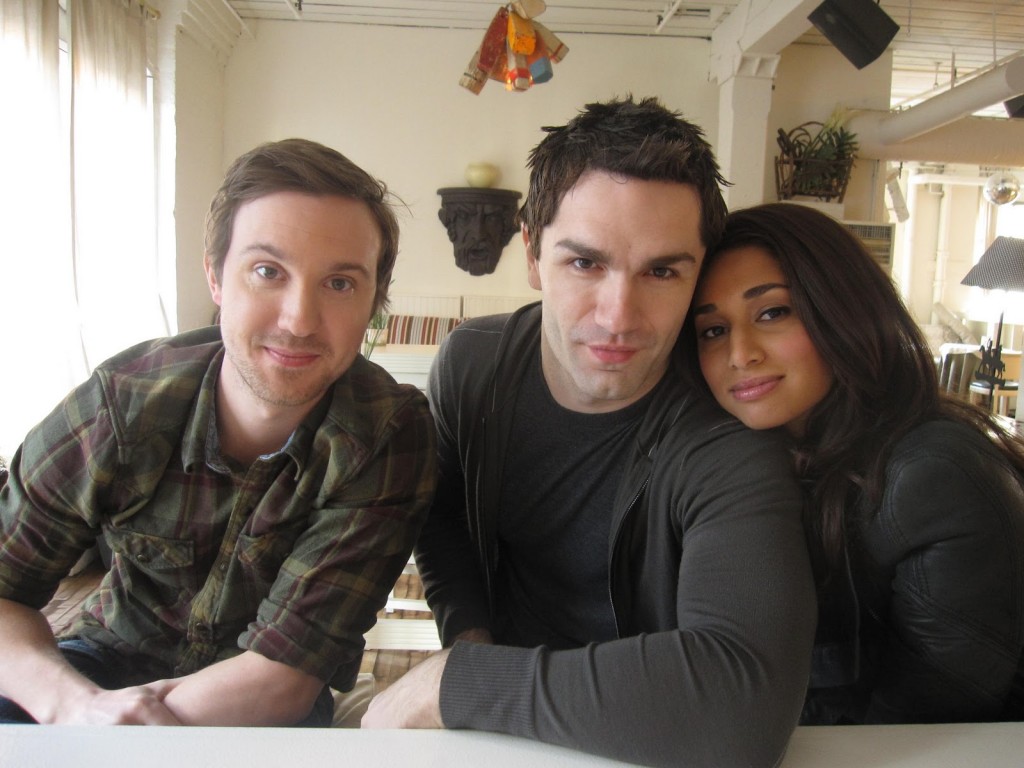Let’s begin here:
My Netflix research this fall tells me that the rules for making popular culture and TV are changing.
The cause? That popular culture is getting better and this means some of the old rules are now ineffectual and in some cases actually counter-productive.
Being Human is a great case study.
This is a study in fantasy and the supernatural. A ghost, a vampire and a werewolf find themselves living together and look to one another for guidance and relief.
It is a show is riddled with implausibilities. Characters skip around in time and space. They morph from one creature to another. The plot lines can get really very complicated.
And the viewer doesn’t care. (At least this viewer doesn’t.) The acting is so good that we believe in these characters and we are prepared to follow them anywhere. Even when the plot tests our credulity, we believe in the show.
The key is good acting. Without this, Being Human is just another exercise in dubiety. With it, the show holds as a story and more important it actually serves as an opportunity to ask big questions that attach to “being human.”
There is a second show in SyFy called Lost Girl. . This is billed as a supernatural crime drama. It too is stuffed with implausibility. Lots of fabled creatures and magical spells. For me, it’s pretty much unwatchable.
And the difference is largely acting. The actors on Lost Girl are not bad. They are just not good enough to deliver the emotion truth on which narratives depend, but more to the point they are not good enough to help Lost Girl survive the weight of its own implausibility.
This condition is actually complicated by the creative decision to have the characters supply the “ancient lore” that explains spells and various supernatural beastie. I found myself shouting at the TV,
“Oh, who the f*ck cares! The back story is a) not interesting, b) it does not animate the front story, c) in short, the back story is your problem, not our problem. Get on with it. Spare us the pointless exposition.”
(Yes, it’s true. I shout in point form. It’s a Powerpoint problem. I’m getting help. It’s called Keynote.)
New Rule # 1
The more implausibility contained in a narrative, the better your actors had better be.
If this means spending more time casting, spend the time casting. If this means paying your actors more, pay them more. Actors are everything. Well, after the writers. And the show runners. Um, and the audience. But you see what I mean.
And this brings us to the second new rule for story telling on TV. The old rule of TV was that actors should be ABAP (as beautiful as possible). Given the choice between someone who is heartstoppingly attractive and someone who looks, say, like one of the actors on Being Human (as above), you must, the old rule says, choose the actor who is ABAP. (The Being Human actors are attractive. They just aren’t model perfect.)
This rule created a trade off. Very beautiful actors were chosen even when they weren’t very talented as actors. Indeed, show runners were routinely trading talent away for beauty. As a result, a show began to look like a fashion runway. Even good writing could be made to feel like something out of the day-time soaps.
Bad acting is of course the death of good narrative. Wooden performances can kill great writing. But real beauty exacts a second price. There are moments when you are supposed to be paying attention to a plot point and you find yourself thinking, “Good lord, what a perfectly modeled chin!”
In a perfect world, every actress would be Nicole Kidman, perfectly beautiful, utterly talented. In the old days, when TV makers had to chose they would go for beauty even when it cost them talent. But here’s the new rule.
New Rule # 2
Do not choose beauty over talent. Beauty used to be the glue that held your audience to your show. Now that work is performed by talent. It’s not that beauty doesn’t matter. Seek attractive actors. But beauty will never matter more than talent. Make sure the talent is there, and then, and only then, can you cast for beauty. Think of this as a kind of “attractive enough” principal.
Stated baldly, this rule seems indubitable. What show-runner or casting agent would ever think otherwise? On the other hand, I dropped in on The CW recently and everyone seemed model perfect with bad consequences for the quality of the work on the screen.
A change is taking place in our culture. And over the longer term, it will provoke a changing of the guard, a veritable migration in the entertainment industry . Actors who are merely talented will have a more difficult time finding work. And, counterintuitively, actors who are blindingly attractive will have a more difficult finding work. What used to make them effective now makes them distracting.
As popular culture becomes culture, there will be many more changes. Watch this space.
